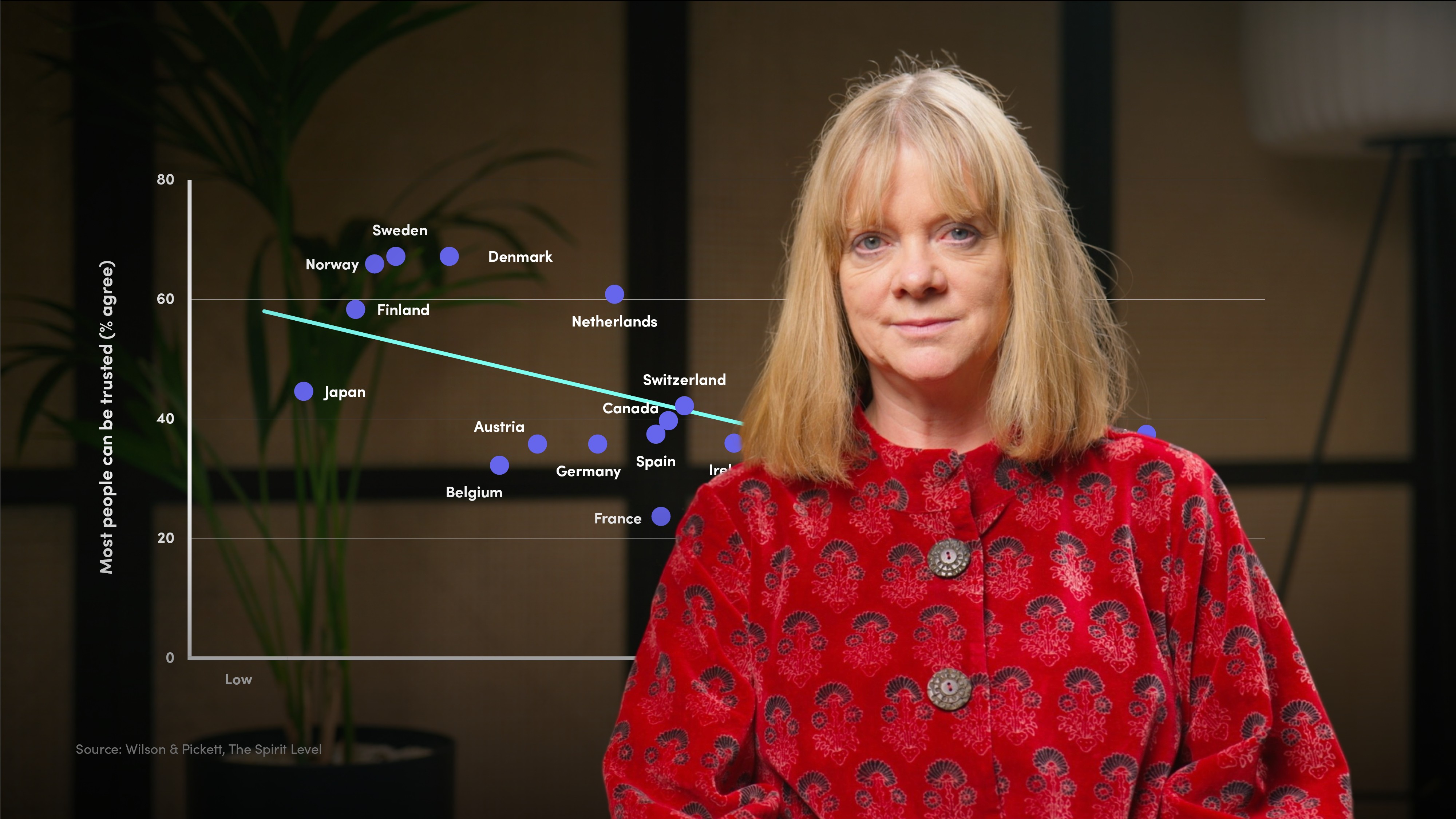
Economic Inequality and Social Capital

Kate Pickett
30 years: Professor of Epidemiology
In this video, Kate explores the significant impact of income inequality on societal health and sustainability. She also discovers how inequality weakens community bonds, increases violence, and incurs economic costs.
In this video, Kate explores the significant impact of income inequality on societal health and sustainability. She also discovers how inequality weakens community bonds, increases violence, and incurs economic costs.

Economic Inequality and Social Capital
8 mins 44 secs
Key learning objectives:
Understand the societal costs of inequality
Understand how greater equality can improve quality of life and sustainability
Overview:
Income inequality significantly impacts societal health and sustainability. In unequal societies, lower levels of trust and social capital lead to weaker community bonds and higher instances of violence and mental health issues, with substantial economic costs like lost productivity due to workplace bullying. Conversely, greater equality enhances cooperation and mutual support, key for sustainable development. Reducing income inequality could save billions in health costs and other societal damages, emphasising the need for collective efforts towards equality for improved societal well-being and environmental sustainability.

Kate Pickett
There are no available Videos from "Kate Pickett"

